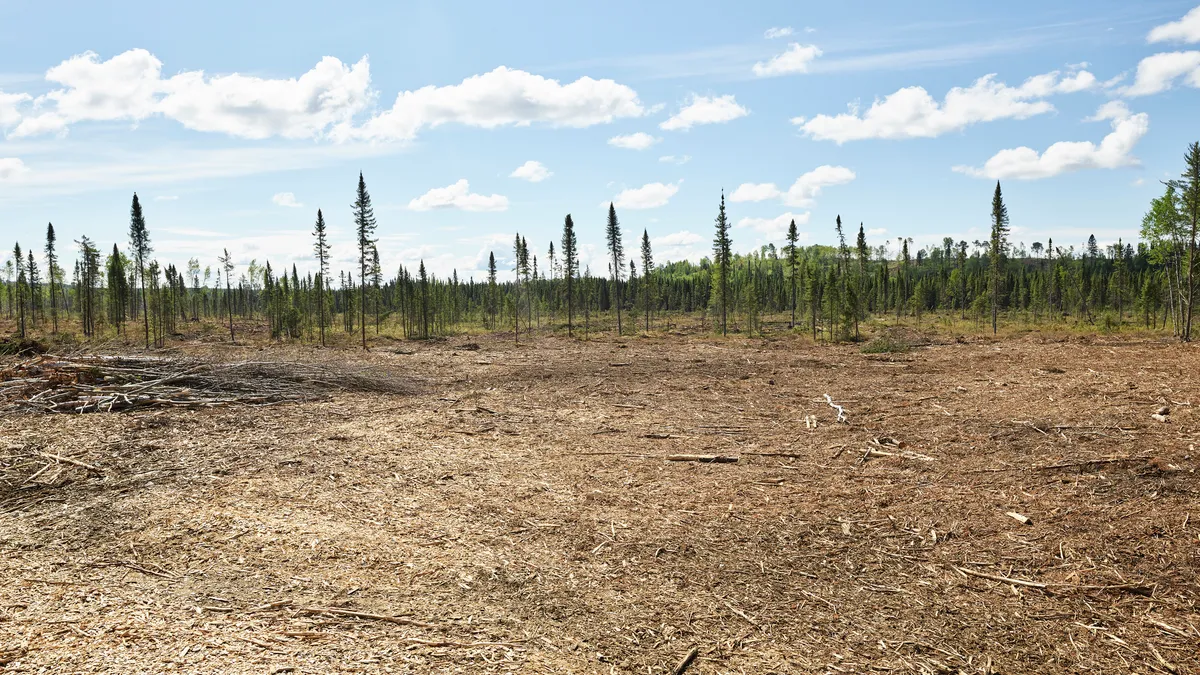Dive Brief:
- Thirty-eight percent of 5,300 large, publicly traded companies operate at least one facility causing loss of habitat and a risk to biodiversity, according to a study by Moody’s ESG Solutions of more than 2.1 million facilities worldwide using “high resolution remote sensing data.”
-
Moody’s ESG Solutions describes its framework for measuring biodiversity risk as “a foundation for understanding the biodiversity risks of companies in investment and lending portfolios.”
-
A rising threat to biodiversity “calls for a dual materiality approach, in which accounting ‘values’ a company’s long-term impact on ecosystems and society,” Moody’s said, adding “this means that material information includes not only the impact of biodiversity loss on a company’s business, but also the impact of the company on biodiversity and natural capital.”
Dive Insight:
“Financial regulators will increasingly incorporate biodiversity indicators into reporting requirements, which will likely put increasing pressure on companies to address their impacts on biodiversity,” Moody’s ESG Solutions said.
The European Central Bank last year released a non-binding Guide on Climate-Related Environmental Risks that describes “how the ECB expects institutions to consider climate-related and environmental risks — as drivers of established categories of prudential risks — when formulating and implementing their business strategy and governance and risk management frameworks.”
In a 13-point list of “supervisory expectations,” the ECB said companies should “exercise effective oversight of climate-related and environmental risks” and weigh such risks when crafting business strategy, objectives and risk management plans.
The Securities and Exchange Commission is stepping up its scrutiny of company disclosure on environmental issues. SEC staff are reviewing the agency’s regulation of disclosures with an eye on promoting “consistent, comparable and reliable information on climate change.”
The commission is giving the public until June 13 to comment on the adequacy of its climate change disclosure regulations, SEC Chair Gary Gensler said in testimony to a House subcommittee on Wednesday.
Appearing before the subcommittee on financial services and general government, Gensler declined to say when the SEC will release a draft of proposed changes but pledged to “move expeditiously.”
Rep. Steve Womack of Arkansas, the committee’s ranking Republican, voiced concern the SEC may exceed its mandate by requiring stricter climate disclosure standards.
“I don’t believe the SEC should be using its authority over public companies to require costly and ideologically based disclosures,” Womack said.
“What we’re finding is there’s literally trillions of dollars of assets under management that have asked for and want to understand the climate risks,” Gensler said. “As investors are looking for that, we as an agency can help bring some comparability to the disclosure, some consistency, some reliability.”
Moody’s ESG Solutions found in its study that efforts by companies to reduce harm to biodiversity often fall short of commitments they make in public disclosures. For example, 61% of heavy construction companies disclose commitments related to biodiversity but less than 10% received a “robust” or “advanced” score from Moody’s for implementation.
Moody’s flagged “urban sprawl” as a major threat to biodiversity in the U.S., singling out big-box retailers such as Dollar General that pursue a “pattern of growth that inspires more sprawl by developing low-density, single-story buildings on the outskirts of town, in vegetated, undeveloped land.”
Dollar General’s growth pattern “contributes indirectly to habitat loss by increasing pollution, water contamination and climate change as people drive longer distances to patronize its stores,” Moody’s said.
Dollar General spokespersons did not respond to phone and email requests for comment.













